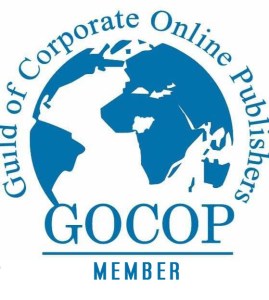ActionAid Nigeria has demanded immediate action to address the dire realities confronting the nation.
The recently released Human Development Report (HDR) paints a harrowing picture of global regression in human development, with Nigeria as one of those at the epicenter of this crisis. The latest data from the report ranks Nigeria as low as 161 out of 193 countries in the world with HDI value as low at 0.548. This huge setback is more frightening as the recorded recovery of Human Development Index (HDI) values since the 2020–2021 decline is projected to be highly unequal.
A statement by ActionAid on Tuesday said “the impact of the findings in the report on the Nigerian populace cannot be overstated and as always, it is the most vulnerable who bear the brunt. Only half of the global population feels in control of their lives, and one-third feel unheard in their political system.
“The National Multidimensional Poverty Index is 0.257, indicating that poor people in Nigeria experience just over one-quarter of all possible deprivations. This disenfranchisement disproportionately affects the marginalised communities of Nigeria, trapping them in cycles of poverty and despair.”
The ActionAid Nigeria Country Director, Andrew Mamedu noted that: ‘‘According to the report, both Libya and South Africa boast relatively high HDI rankings, indicating significant achievements in human development. Libya’s wealth, predominantly derived from its substantial oil reserves, has contributed to its high HDI ranking, while South Africa’s diversified economy and robust infrastructure have propelled its development.
“Despite Nigeria’s vast natural resources and higher GDP compared to Libya and South Africa, its HDI remains comparatively low. This discrepancy underscores a critical issue: the failure of economic growth to translate effectively into improvements in the well-being of Nigerian citizens. While Nigeria’s high GDP figures may suggest economic prosperity, it evidently does not necessarily correlate with improvements in living standards, education, healthcare, or overall human development. In alignment with the federal government’s target to lift 50 million people out of poverty.”
He said ActionAid Nigeria has also set a goal to contribute to lifting 1,000,000 individuals out of poverty within the next five years, stating that achieving these ambitious goals require collaboration from all stakeholders, especially the federal and state governments. It will be disheartening to witness the efforts of civil society organisations in lifting individuals out of poverty being hindered by unfavourable policies and escalating corruption.
ActionAid Nigeria called upon the federal government to heed the urgent call to action outlined in the HDR, demanding immediate measures to address the crises unfolding in education, health, infrastructure, and social safety nets.
ActionAid Nigeria specifically demanded that the Federal Government must make concerted efforts to address poverty, unemployment, and income inequality.
The statement read that: “We demand for the implementation of comprehensive social protection programme to provide a safety net for the most vulnerable, as well as initiatives to create decent and sustainable employment opportunities, particularly for youths and women. This includes having price controls to help stabilise prices and ensure that essential goods remain accessible to all Nigerians. However, since corruption has been prevalent in the social protection programmes in the past, stringent measures must be put in place to combat corruption and ensure the effective delivery of support to those who need it most.
“To address the issue of Nigerians spending between $1.5 billion to $2 billion on health tourism, the Federal Government must prioritise healthcare access and affordability for all citizens. This entails increasing investment in healthcare infrastructure, training, and deploying more healthcare professionals, and ensuring the availability of essential medicines and services, particularly in rural and underserved areas. Additionally, there is a need to prioritise the recruitment of healthcare workers to bolster the country’s healthcare system. By reversing the trend of high spending on health tourism and redirecting resources towards improving domestic healthcare services, Nigeria can provide better care for its citizens and reduce the need for medical tourism.
“Allocate sufficient resources to improve access to quality education for all Nigerians. This includes investing in school infrastructure, providing adequate training and support for teachers, ensuring safe and secure schools for children, and implementing policies to ensure inclusive and equitable education for every child, particularly girls and children with disability.
“Reduce the influence of international financial institutions such as the IMF and the World Bank, which often prioritise austerity measures over investments in social welfare.
“Provide a robust infrastructure network for economic growth and social development. ActionAid Nigeria calls for increased investment in infrastructure projects, including roads, bridges, electricity, and water supply, to improve connectivity and enhance the quality of life for all Nigerians. This will also create opportunities for smallholder women farmers to access markets more easily and transport their goods to buyers. Furthermore, the government should prioritise the maintenance and rehabilitation of existing infrastructure to ensure its longevity and effectiveness. This enhancement will not only improve farmers’ productivity but also reduce post-harvest losses, ultimately leading to improved livelihoods and economic empowerment for smallholder women.
- Implement comprehensive security reforms to address the alarming rise in security threats across Nigeria, including kidnapping, displacement, ritualistic practices, banditry, and other forms of violence. The Federal Government must also strengthen law enforcement agencies, security infrastructure, and intelligence-gathering mechanisms to effectively combat criminal activities and to ensure the safety and security of all citizens, especially students, farmers and those in vulnerable and marginalised communities.”
Mamedu said that: “The Federal Government as the custodians of our nation’s future must act decisively and swiftly and failure to act will condemn millions of Nigerians to a future of perpetual suffering and despair. ActionAid Nigeria stands ready to collaborate with the government and other stakeholders to chart a path towards sustainable development and prosperity for all Nigerians.”





















